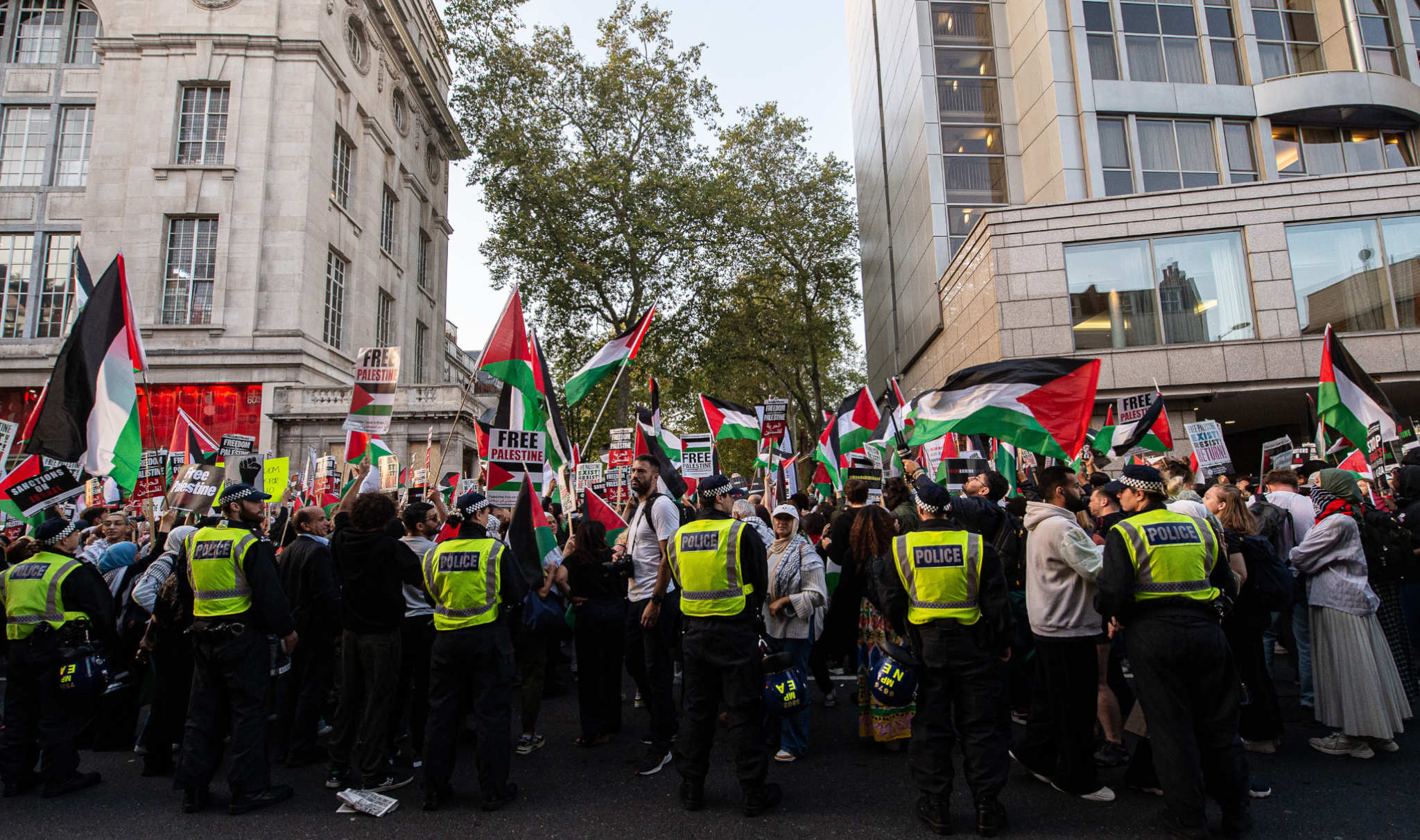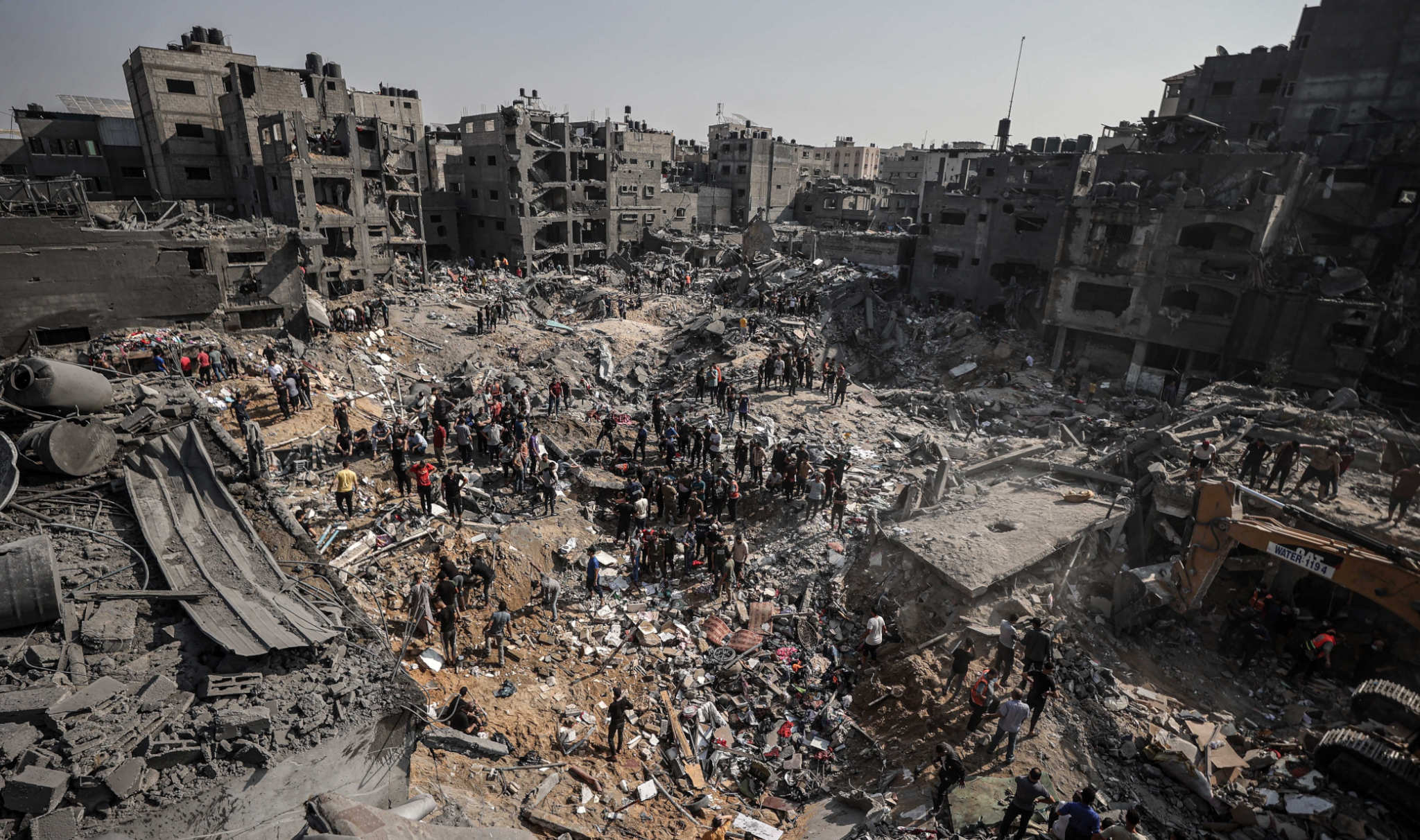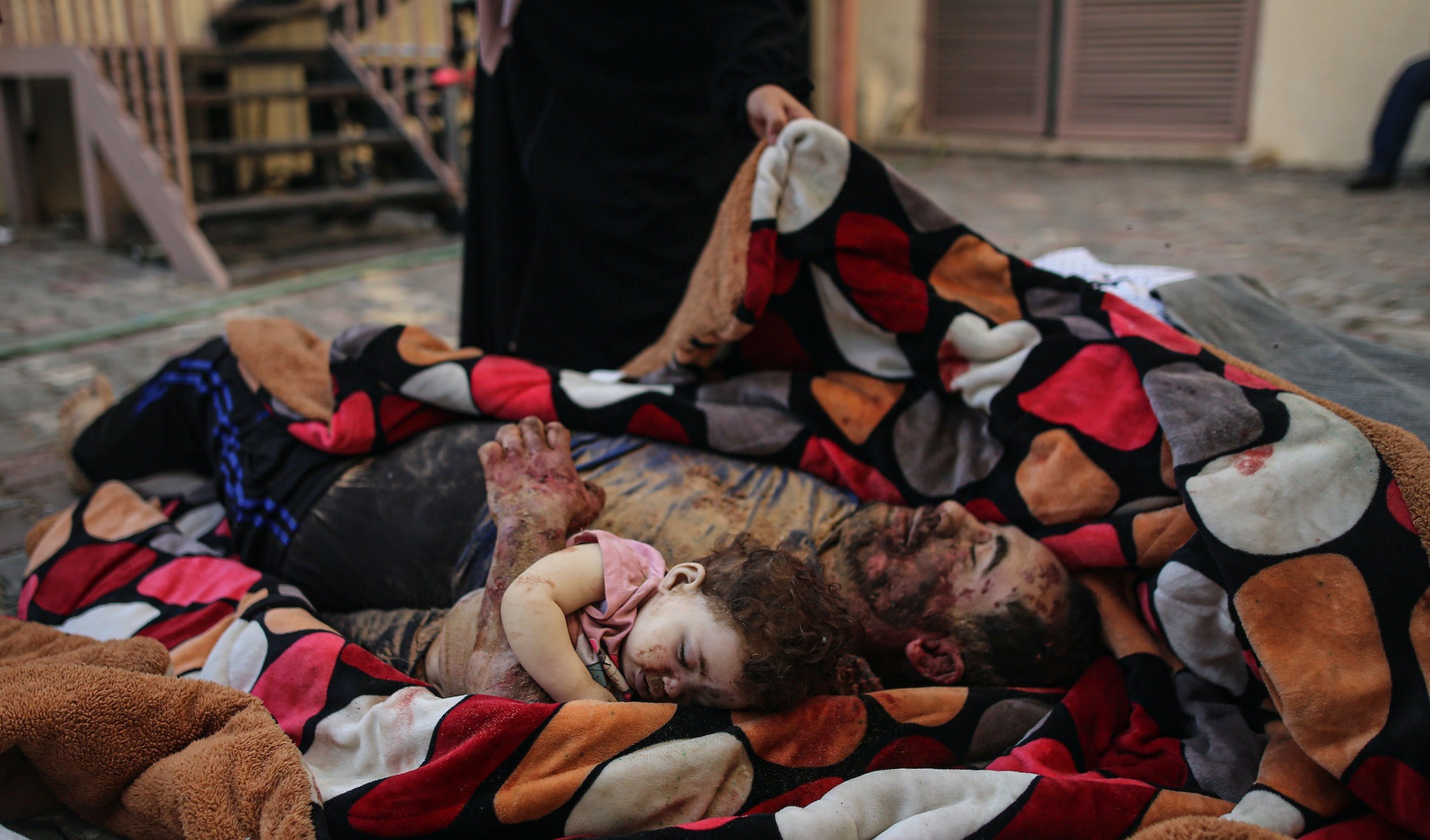Senior officers in London’s Metropolitan Police Service (MPS) have accepted invitations to address an Israeli think tank linked to its government and intelligence service, Mossad, Declassified has found.
Those figures include Mark Rowley, the MPS’ current commissioner, and Cressida Dick and Sir Bernard Hogan-Howe, two previous commissioners.
A number of high-ranking MPS officers have also accepted gifts or hospitality from the Israeli embassy in London, despite MPS guidance stating that such offers be refused.
The revelations come after the MPS, under pressure from the UK government, initially urged pro-Palestine organisations “to consider postponing any demonstrations in London” this weekend.
It then acknowledged that it did not have sufficient intelligence to justify banning the protest.
Collaboration between the Israeli government and the MPS dates back to at least the early 2000s, when an MPS team was sent to Israel to learn about the country’s counter-terror strategy.
International Institute for Counter-Terrorism
The International Institute for Counter-Terrorism (ICT) is an Israeli think tank based at Reichman University in Tel Aviv district. It was founded in 1996 as a forum for “international cooperation in the global struggle against terrorism”.
It offers “consulting and training” to foreign governments and corporations, provided by “the most senior veterans of the Israeli intelligence and security establishments”.
While the ICT claims it is “independent”, it is staffed and advised by an array of figures linked to Israel’s military and intelligence community.
The ICT’s founding director, Boaz Ganor, has served as a member of the advisory committee of the Israeli National Security Council on counter-terrorism, and was a consultant to Benjamin Netanyahu, Israel’s current prime minister, on his book “Fighting Terrorism”.
Shabtai Shavit, the ICT’s chairman of the board between 2001 and his death in 2023, was the director of Mossad, Israel’s covert intelligence service, between 1989 and 1996.
The organisation’s founding president and other chair, Uriel Reichman, has served as a paratrooper and reservist in the IDF.
Other senior staff have similar backgrounds. The group’s managing director, Colonel (retired) Miri Eisin, previously served in the Israeli intelligence community while its research director, Eitan Azani, was a Colonel in Israel’s military with “experience in counter-terrorism in the regional and international arenas”.
The ICT strongly supports Israel’s current attacks on Gaza. It states these are “a decisive effort by Israel to safeguard the security and well-being of its citizens and to address the challenges posed by extremist elements in the region”.
‘I have learnt a huge amount’
Over recent years, a number of senior MPS figures have accepted invitations to speak at the ICT, which regularly offers to pay for travel and hospitality for attendees.
In 2013, MPS assistant commissioner for specialist operations Cressida Dick gave a keynote speech to the ICT’s 13th annual conference as part of a “large British contingent”, according to the ICT. She was pictured at the event alongside Jonathan Davis, a Lieutenant Colonel in the IDF spokesman’s office.
MPS commissioner Sir Bernard Hogan-Howe and its counter-terrorism director Dean Haydon spoke at the conference in 2014 and 2016 respectively.
In 2017, Mark Rowley, then the MPS assistant commissioner for specialist crime and operations, spoke at the ICT’s 17th annual conference. He was joined by Alistair Sutherland, the City of London police assistant commissioner.
“In 2017, Mark Rowley spoke at the ICT’s annual conference”
In 2018, MPS deputy assistant commissioner Lucy D’Orsi delivered a keynote speech at the ICT “World Summit”.
In 2021, Dick returned to the ICT having been promoted to MPS commissioner, and delivered a keynote speech at its World Summit to mark the 20-year anniversary of 9/11.
“I have… benefitted from the conference in the past and I have learnt a huge amount on my various visits to Israel”, she told the audience.
The next year, MPS acting commissioner Stephen House was also invited to talk at the conference, but declined the offer due to scheduling difficulties.
UK foreign secretary James Cleverly subsequently addressed the ICT conference two months ago, telling the audience: “The work that this summit is doing is incredibly important not just to your country, not just to the region, but of course also to the United Kingdom”.
He added that the UK and Israel cooperate “bilaterally” in the context of “intelligence officers, police officers, diplomats” working to “stop those who would do us harm”.
Gifts and hospitality
Public data reviewed by Declassified shows that senior MPS officers are also frequently offered gifts and hospitality by the Israeli government.
A number of offers have been accepted, despite the MPS’ “default position” that “officers will decline any gifts or hospitality offered to them”.
In May 2022, for instance, MPS deputy assistant commissioner for special operations Matt Twist accepted an invitation to a “celebration of Israel’s 74th Independence Day” issued by Tzipi Hotovely, the Israeli ambassador in London who is now vociferously defending its war crimes in Gaza.
Specialist operations assistant commissioner Matt Jukes was also invited to join the celebration, but failed to attend due to “previous diary commitments”. He did however accept a plaque from Israeli embassy officials.
Another MPS commander accepted a “gift of a framed certificate/plaque” from the Israeli National Police “during a visit to MPS” in March 2022. The nature of this visit remains unclear, and there was no publicity about it.
In November 2022, MPS commissioner Mark Rowley was also invited by the Israeli police to attend the International Commissioners Conference in Israel, but the offer was declined.
Senior MPS officers have also accepted gifts and hospitality offers from other states such as the US and Jordan.
Operation Kratos
The MPS and the Israeli police have a longstanding relationship on counter-terror strategy.
Following the 9/11 attacks in New York and Washington, an MPS team was dispatched to Israel, Sri Lanka, and Russia to investigate “suicide terrorism and what tactics were available that the police in the UK could deploy to counter this threat”.
“The MPS and the Israeli police have a longstanding relationship on counter-terror strategy”
The research was formalised within Operation Kratos, a national security policy designed to defend against the threat of suicide terrorism in the UK.
According to academic Nick Vaughan-Williams, this new policy was “based primarily upon the experiences of the Israeli police who are told to shoot to the head if there is imminent danger to life”.
In the aftermath of the killing of Jean Charles de Menezes by the MPS in 2005, human rights organisations including Amnesty International called for public scrutiny of Operation Kratos and its implementation of “shoot to kill” measures.
‘More doors will be open for him’
The MPS’ relationship with the Israeli police continued throughout the 2010s.
Sir Bernard Hogan-Howe, the MPS commissioner between 2011 and 2017, met with Israeli police chief commissioner Yohanan Danino in 2014 during his five-day trip to Britain.
It was reportedly the first Israeli police visit to the UK in a number of years. “Now, after this visit, more doors will be open for him [Danino]”, observed Diane Eldad-Sheetrit, the head of the Israeli police’s International Co-operation Unit.
Danino also held meetings with the Central Operations Specialist Firearms Command (SO19) of the MPS.
Hogan-Howe would go on to join the advisory board of Carbyne, an Israeli communications firm then chaired by Ehud Barak, the former prime minister of Israel.
In 2019, MPS deputy assistant commissioner Dean Haydon was forced to issue a statement after the Palestine Solidarity Campaign and other non-violent organisations were listed in a leaked Counter Terrorism Policing briefing document “used by Prevent”, the government’s programme to address radicalisation.
More recently, in May 2022, the MPS was met with a “deluge of criticism” after it welcomed an Israeli police delegation to London just one week after Israeli forces had killed Shireen Abu Akleh, a US-Palestinian journalist working for Al Jazeera.
The visit was facilitated by deputy assistant commissioner Laurence Taylor, who would go on the next year to address the ICT’s 22nd international conference.




